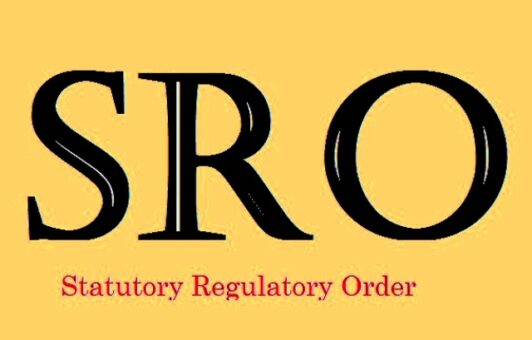PkRevenue.com — The Federation of Pakistan Chambers of Commerce and Industry (FPCCI) has called on tax authorities to withdraw SRO 350(I)/2024, citing increased compliance costs and bureaucratic hurdles for registered taxpayers.
The FPCCI’s recommendations for the budget 2024-25 highlight the adverse impacts of this regulation on businesses and propose a reconsideration of measures aimed at combating tax evasion without burdening compliant taxpayers.
SRO 350(I)/2024 was introduced on March 7, 2024, with the intention of curbing the issuance of fraudulent invoices, also known as flying invoices. However, the FPCCI argues that while these invoices are issued by a minority of offenders, the stringent requirements imposed by the SRO have created widespread difficulties and elevated compliance costs for all registered taxpayers. Subsequent amendments through SRO 582(I)/2024 on April 18, 2024, and SRO 644(I)/2024 on May 7, 2024, have not alleviated these concerns.
One of the primary points of contention is the addition of sub-rule (f) in Rule 5(2) of the Sales Tax Rules, 2006. This new requirement mandates that individuals, Associations of Persons (AOPs), and companies with a single shareholder (excluding manufacturers) submit a balance sheet indicating business capital, assets, and liabilities. If this balance sheet is not submitted, authorization from the Commissioner is required to file returns. The FPCCI notes that while the Federal Board of Revenue (FBR) has clarified that this balance sheet needs to be submitted only once, the information is already available in the taxpayer’s income tax return, making this additional submission redundant and burdensome.
Further complications arise from amendments to Rule 5, which now require approval from the Local Registration Office (LRO) for sales tax registration, yearly biometric re-verification of registered persons, and pre-verification before registration. The FPCCI contends that these changes not only increase compliance costs but also open avenues for harassment and corruption, potentially discouraging new business registrations.
The FPCCI also highlights problematic changes in Rule 18, such as the requirement for registered persons with sales exceeding five times their declared capital plus liabilities to seek prior permission from the Commissioner to file sales tax returns. Additionally, the new sub-rule (4A) renders sales tax returns provisional until suppliers file their respective returns, effectively holding buyers accountable for the compliance of their suppliers. This, according to the FPCCI, is both unjust and impractical.
Another contentious point is the amendment requiring prior approval from the Commissioner to issue credit notes as per the new proviso to sub-rule (3) of Rule 20. The FPCCI argues that this requirement is cumbersome and prone to misuse, fostering an environment ripe for corruption.
Despite the amendments and clarifications made by SRO 582(I)/2024, SRO 644(I)/2024, and FBR, the FPCCI maintains that the modifications introduced by SRO 350(I)/2024 exacerbate compliance challenges, increase costs, and deter businesses from registering for sales tax. The FPCCI recommends the complete withdrawal of SRO 350(I)/2024 and urges that any new measures to address flying invoices be developed in consultation with stakeholders to ensure practicality and fairness.
As the government prepares the budget for the upcoming fiscal year, the FPCCI’s proposals to withdraw SRO 350 aim to balance the need for effective tax enforcement with the necessity of maintaining a business-friendly environment. The business community hopes for a swift response to these recommendations, anticipating reforms that will facilitate smoother compliance and support economic growth.
